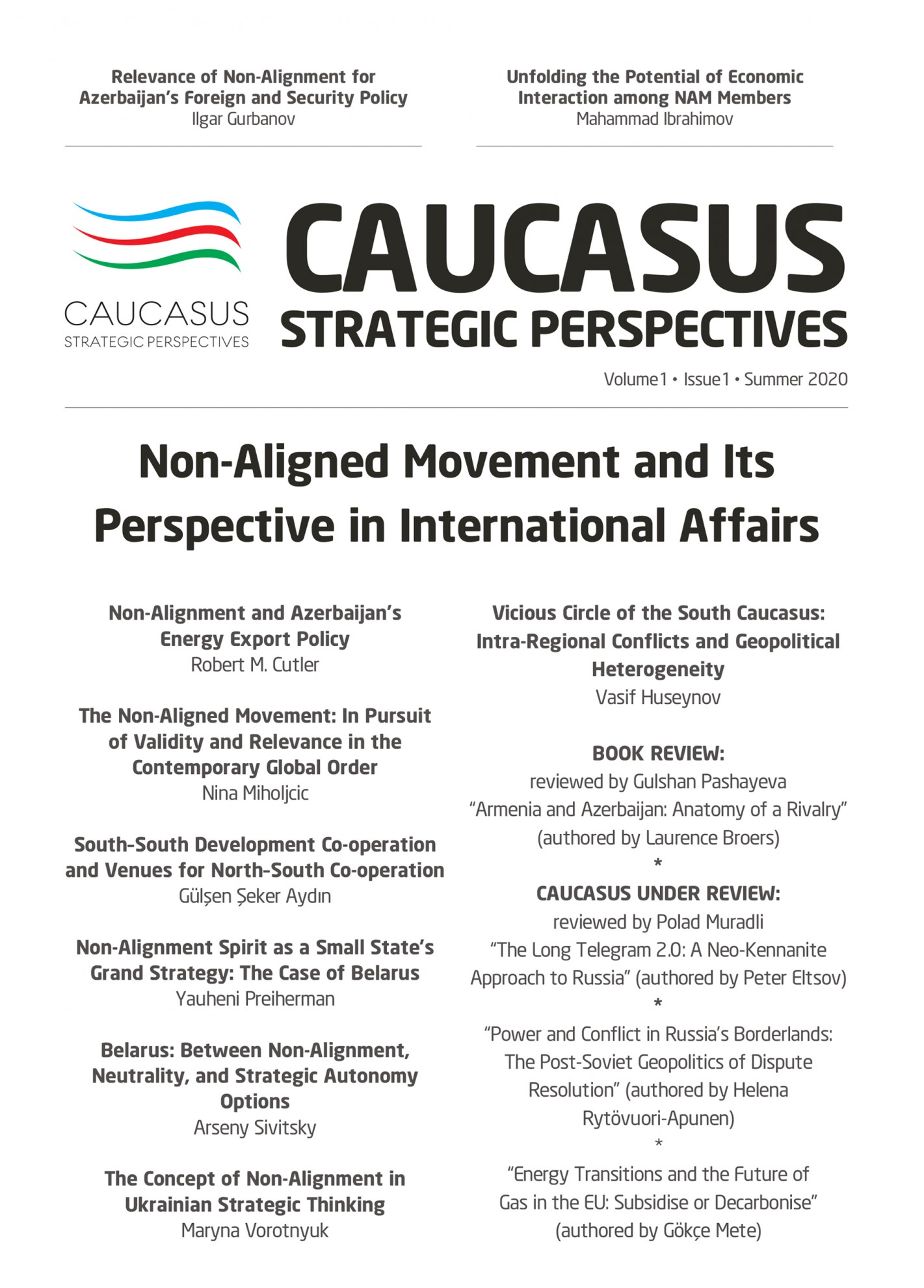Non-alignment and Azerbaijan’s Energy Export Policy
The question of a relationship between Azerbaijan’s role in the Non-Aligned Movement (NAM) and its energy export strategy is examined. The article explains why neorealistand neoliberal theoretical approaches are unsuitable for analysing nascent middle powers such as Azerbaijan in the post-Cold War era. Regime Theory is explored to see if it may offer a better account of Azerbaijani energy policy. To contextualize such an assessment, the article first reviews the NAM’s history and its relation to the Group of Seventy-seven (G77). It then discusses the history of Azerbaijan’s energy strategy to 2011, when it joined the NAM, and then examines trends in Azerbaijani diplomacy since then. The concept of ‘strategic hedging’ further unpacks reasons why neorealism and neoliberalism fail to provide a good understanding of Azerbaijani international behaviour. Azerbaijan’s international energy policy was set into long-term motion more than a decade before the country joined the NAM. It is directed at economic rather than security goals. Co-operation with Western states and companies does not contradict the pursuit of international prestige and middle power status that characterize Azerbaijan’s participation in the NAM. It is not NAM based prestige that might affect Azerbaijan’s energy policy, but rather energy policy that is put into service to enhance relations with other nonaligned states.
Latest news
- 12/27/2024 Call for Submissions-Caucasus Strategic Perspectives, Volume 6, Issue 1, Summer 2025 667 views
Popular articles
- 07/18/2022 The Russia–Ukraine War: Perspective of Azerbaijan 4322 views
- 10/14/2020 The Non-Aligned Movement: In Pursuit of Validity and Relevance in the Contemporary Global Order 3307 views
- 10/14/2020 Vicious Circle of the South Caucasus: Intra-Regional Conflicts and Geopolitical Heterogeneity 3290 views
- 10/14/2020 Relevance of Non-Alignment for Azerbaijan’s Foreign and Security Policy 3019 views





